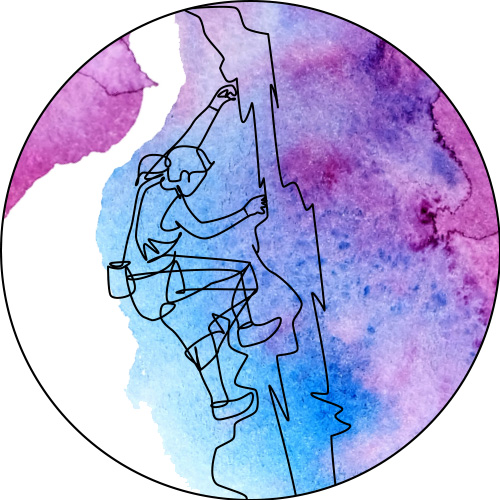The Girl That Was: Chapter 2
| July 12, 2022Often, people with these illnesses don’t believe that they need the medication. So my father simply refused to take it

M
y brothers would talk about how my father became unpredictable. When he would walk through the door, they couldn’t be sure which kind of father was coming through: the loving father or the moody father. When he was in that mode, he was totally unpredictable. For example, he made contests and promised them huge prizes, but when they achieved the goal, he would change his mind or claim they didn’t deserve it.
Sometimes he would begin ranting about a small thing and seem almost unable to stop. Once, Mommy forgot to bring the camera when they went on vacation, and for the full four days of the trip, he was upset at her for forgetting it.
No one in my family was very forthcoming with information. But once in a moment of candid conversation Mommy explained to me that my father had a mental illness. He went to a psychiatrist and got medications. But often, people with these illnesses don’t believe that they need the medication. So my father simply refused to take it.
Life was totally unpredictable. It was scary, and the children were scared as well.
I had only vague recollections of life before and after the divorce. I had some vague images of Totty coming outside the house to spend some time with me.
But it didn’t last too long. When he remarried, I thought that maybe now it would be different. Maybe he would be happy to have his biological children in his new home. It didn’t happen. That hurt.
That marriage didn’t last long. Afterward, he left the country. He went to Eretz Yisrael.
But I had a good life. I had a great mother who was devoted to me and loved me. My older brothers were always looking out for me. And my married brothers’ wives were amazing. I loved them.
So divorce was just part of my life, and really I didn’t think so much about it.
Until I was about to start high school, and I was afraid that the stigma of divorce would ruin my chances of fitting in.
How could I start high school as a girl with divorced parents? I felt like I had a big, fat, bold letter D stamped on my forehead. It yelled divorce! And I was certain that I didn’t stand a chance of any social standing in my new school.
I pulled myself off my comfortable bean bag, fixed my hair, and yelled out to Mommy that I was going to visit Bubby. Bubby seemed to always have just the right words. I knocked on the door and found Bubby preparing supper for a family in need. But hey, we could talk as she fried schnitzel and cut up vegetables.
“You know,” Bubby said, “it’s all how you come across. If you come across as confident and fine with yourself, then the other girls will view you as just that.”
“No, Bubby,” I answered. “In high school the girls only want to be friends with regular girls. If they think that someone is different, then they don’t want to associate themselves with that person.”
Bubby looked at me and said, “Are you different?”
“Aren’t I?”
“What makes you different than any other girl?”
“Well,” I said, “Chani has a mother and father living in her home. Hey, so does Blima. Come to think of it, so does Hadassah. Yup I am different.” The tears started coming.
“Oy, Mindy,” Bubby said. “Someone in a different Bubby’s house is also crying. Maybe because they have an autistic sibling or they struggle socially. Maybe they can’t manage academically or maybe one of their parents is in the hospital. Everyone is the same and different. And you, well, you are a great girl with a good head. You make friends easily, and you love to sing. You are a kind and sensitive person. And that is due in part to your parents’ divorce.
“Mindy, you have nothing to be ashamed of. It’s all how you represent yourself.”
I walked home with my head held high. Yes, my parents were divorced, but everyone had something. I would be okay. I already was.
To be continued…
Miriam Ribiat is the Project Manager at Chevrah Lomdei Mishnah, coordinating many projects related to grief support. She is also the author of several books on the topics of loss and grief, for adults and teens. She can be contacted through Teen Pages.
(Originally featured in Mishpacha Jr., Issue 919)
Oops! We could not locate your form.


